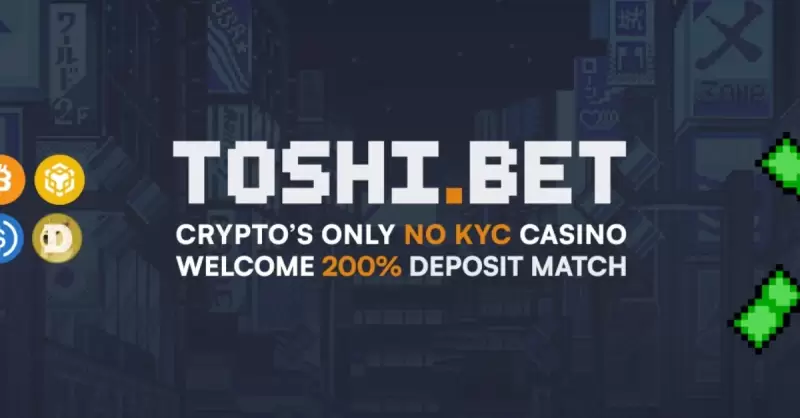 |
|
 |
|
 |
|
 |
|
 |
|
 |
|
 |
|
 |
|
 |
|
 |
|
 |
|
 |
|
 |
|
 |
|
 |
|
Cryptocurrency News Articles
Bybit Hack: North Korea-Linked Lazarus Group Launders Stolen Funds Through Solana Rug Pulls
Feb 24, 2025 at 07:08 pm
The crypto industry is still reeling from its largest hack to date. Crypto exchange Bybit lost more than $1.4 billion from its cold wallet. Recently, hackers have been revealed to be North Korea's infamous Lazarus group.
Cryptocurrency exchange Bybit lost over $1.4 billion in a recent hack, and now the stolen funds are being moved around by hackers, who are also using some of the funds to launch rug pulls on Solana, according to new details revealed by on-chain investigator ZachXBT on Monday, February 24.
The hackers, who are reportedly part of North Korea's Lazarus group, are attempting to launder the stolen crypto by making several transactions to mask the origins of the funds. In a bid to counter this effort, ZachXBT has been tracking the addresses that received funds from the Lazarus hack, and he has identified over 920 addresses so far.
One of the addresses, which received 1.08 USDC from the Bybit hack via a Solana bridge to BSC, then went on to distribute these funds among over 30 other addresses, according to ZachXBT’s investigation. One of these addresses was involved in launching and trading tokens on Pump.Fun.
Pump.Fun is a platform that facilitates the launch of memecoins by making it easy to create tokens on the platform. However, the platform has also become popular among crypto scammers, who use it to launch rug pulls, targeting unsuspecting investors. This has led to speculation that North Korea may be using the stolen funds to launch rug pulls.
The $1.4 billion hack, which is the largest in crypto history, has sparked discussion on what will happen next, especially considering that the Lazarus group is directly linked to North Korea, which uses the proceeds from hacking to fund its operations, including its military.
If the Lazarus group succeeds in laundering the stolen funds, it will directly contribute to funding North Korea, a country that is sanctioned by most of the developed world. As a result, many are calling for drastic measures, such as a hard fork of the Ethereum blockchain.
Following the hack, several parties have been calling on Ethereum to take action, similar to what it did during the DAO hack, by having the network perform a hard fork to reverse the transaction.
In response to the Bybit hack, several people have asked for Ethereum to step in and do what it did with the DAO hack, which saw the network carry out a hard fork to return the funds to the DAO. Supporters of this idea suggest that the network should perform a hard fork to reverse the transaction.
However, while this is technically possible, it is unlikely to happen. For one, Ethereum is a decentralized chain, which makes it difficult to achieve consensus among all validators for such a measure. Moreover, a hard fork would also go against Ethereum’s ethos of decentralization. Currently, several security firms are urging platforms to blacklist all addresses connected to the hack.
The Lazarus Group Hack: A Timeline (So Far)
The Lazarus group, which is backed by North Korea, has been linked to several high-profile cryptocurrency hacks in recent years. In 2022, the group is believed to have stolen around $1.7 billion in digital assets, according to a report by blockchain analytics firm Elliptic.
The group's hacking activities are typically used to generate revenue for the North Korean government, which is heavily sanctioned by the United States and other countries. North Korea is also known for using stolen cryptocurrency funds to support its nuclear and missile programs.
The recent hack of Bybit, one of the world's largest cryptocurrency exchanges, is the latest in a string of attacks attributed to the Lazarus group. The stolen funds, which include various cryptocurrencies, are being moved around by the hackers to conceal their origins and launder the money.
According to on-chain investigator ZachXBT, some of the stolen funds have ended up in wallets linked to Solana rug pulls, suggesting that North Korea may be using the stolen funds to launch rug pulls, among other things.
Meanwhile, several parties are calling for drastic measures to prevent the stolen funds from reaching North Korea, including a hard fork of the Ethereum blockchain to reverse the transaction. However, this is unlikely to happen due to Ethereum's decentralized nature and ethos.
Disclaimer:info@kdj.com
The information provided is not trading advice. kdj.com does not assume any responsibility for any investments made based on the information provided in this article. Cryptocurrencies are highly volatile and it is highly recommended that you invest with caution after thorough research!
If you believe that the content used on this website infringes your copyright, please contact us immediately (info@kdj.com) and we will delete it promptly.






















































